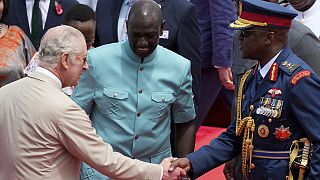Mozambique
‘‘We have to focus on our great objective. This great objective is to speed the country’s development so that we can have more production, more vehicles, including Mercedes (Benz),’‘ the words of Mozambican Premier in response to an outrage over posh cars for top members of parliament.
According to Prime Minister Carlos Agostinho do Rosario, instead of complaining over expenditure of MPs, nationals should work hard to better the fortunes of the economically battered southern African country.
The BBC’s reporter in the country, Jose Tembe, however, reported that PM do Rosario said there was the need to measure the implications of the expense on the country’s budget.
Mozambicans earlier this week expressed disgust after the leadership of the country’s legislature purchased 18 luxury vehicles for an estimated $3.8m. The vehicles were assigned to members of the Standing Commission – the legislature’s governing board.
The outrage which was largely on social media was against the backdrop that the country was in the midst of an economic crisis. The purchases were largely seen as insensitive on the part of the lawmakers.
Leaders of the opposition and ruling party bloc admitted that the public outrage was justified but insisted that they needed official vehicles in the discharge of their duties. The National Budget Director of the Ministry of Finance, Rogerio Nkomo, also echoed that position.
The International Monetary Fund (IMF) and state budget donors suspended aid to Mozambique in April 2016 after the release of government-guaranteed hidden loans between 2013 and 2014 amounting to over 1.4 billion dollars (1.2 billion euros).
The amount added to the already known costs of the Mozambican Tuna Company (Ematum), contracted under the same arrangement.
On October 25, 2016; the Mozambican government assumed financial incapacity to pay the next installments of its debts with creditors, defending a restructuring of the payments, indispensable for a new program of the IMF, whose rules prevent aid to countries in an unsustainable trajectory of existing debts.














Go to video
South Africa: boat captain missing , search begins
Go to video
EU maritime force says it is shadowing a Bangladesh-flagged ship seized by pirates off Somali coast
01:07
Mozambique to receive support from Algeria in anti-terror fight
01:06
Mozambique: Jihadist attacks displace thousands in northern province of Cabo Delgado
01:44
Pope prays for peace in Sudan, and Mozambique's Cabo Delgado province
01:08
Ramaphosa says he will sign the National Health Insurance bill into law